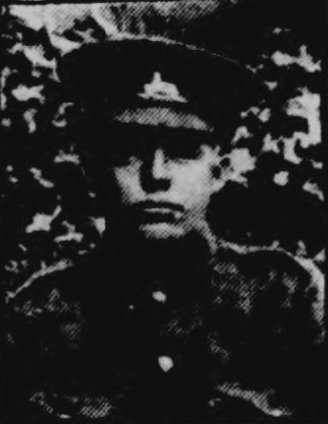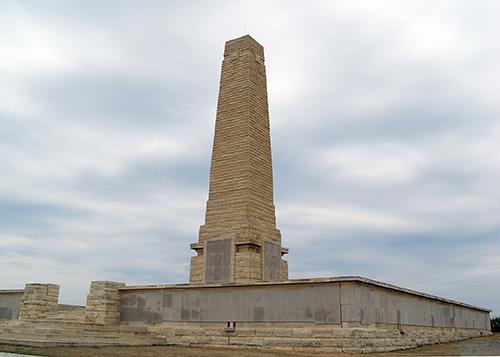Thomas was born in Morton in the summer of 1892 to Edward John Fowler (b. Morton 1859) a farm labourer and his wife Ann Booth (b. Haconby 1861).
Thomas was their 6th child and eventually they would have 14 children in total although one had died before 1911, the last child Ida being born in 1907.
Mary Ann Fowler, 1881, Morton
Susan Fowler, 1882, Morton
Sarah Elizabeth Fowler, 1884, Morton
Jane Fowler, 1886, Morton
Edward Fowler, 1888, Morton
Beatrice Ellen Fowler, 1890, Morton
Thomas Fowler, 1892, Morton
Eliza Fowler, 1894, Morton
Charles William Fowler, 1896, Morton
Jim Fowler, 1898, Morton
John George Fowler, 1899, Morton
May Fowler, 1902, Morton
Frederick Fowler, 1905, Morton
Ida Fowler, 1907, Morton
In 1911 Thomas was living with his parents, in a household with 7 children and one grandchild. Thomas at this time was working as a farm labourer, the same occupation as his father and some of his brothers.
The full service records for Thomas, like so many of the lads from the Great war, are not to be found and most likely were destroyed in the WW2 London Blitz warehouse fire. Thus we have to piece together his time in the British Army from any other remaining sources.
By 1915 many Morton lads had joined the army and Thomas along with another 6 lads all left on Friday 15th January for their respective postings, Thomas’ being with the 6th Battalion Lincolnshire regiment.
Grantham Journal – 23rd January 1915
For King and Country – On Friday week, five more Morton youths joined the Army – Herbert Edward Leverington, Thomas Fowler, William Hubbard, Joseph Taylor, Jack Taylor. Six presented themselves but unfortunately, Foster Handford was rejected owing to a very slight foot trouble. This was a great disappointment to Foster who already has two brothers in Kitchener’s Army. Morton people might well be proud of these young men who have so nobly answered to the call of duty. We also understand that Mr. George Parker, youngest grandson of Mrs. Parker, who lately resided at Hanthorpe House, has joined the Public School Corps and will leave shortly for the front.
The 6th battalion had landed in Gallipoli on the 7th August for the initial attacks on the peninsula via Suvla Bay, but at this time Thomas would still have been in training. It would not be until the 22nd September 1915 that Thomas would join his Battalion in the field, as part of a reinforcement of men to replace those that the 6th Battalion Lincolnshire Regiment had lost at Sulva Bay and attempts to push forward following the initial battles in August.
The war for the 6th Lincolnshires became one of trenches, sniping, bombing and patrols, although the biggest threat to their existence was dysentery due to the conditions and lack of fresh water.
We would normally take the information from the battalion diaries to tell the story of our men, unfortunately the 6th Battalion diaries from the time in Gallipoli were missing and so we cannot really tell the full story.
We do however have the excellent The History of the 6th Battalion Lincolnshire Regiment, by Col F.G. Spring
“Dysentery quickly became very prevalent and was continually reducing the
numbers. Everyone suffered from it. All stores had to be carried by hand from
the beach up to our positions, and this made a very heavy demand on the
strength of the men, already weakened by dysentery. The arrival of an Indian
Mule corps somewhat relieved the situation but great hardship was suffered by
the scarcity of water. Trench warfare began, and continued without break until
the evacuation. On September 10th Lieut.-Colonel Phelps went off with
dysentery. Captain Hansen became Commanding Officer, combining his new
duties with those of Adjutant. A fortnight later he too succumbed to dysentery,
and Captain Cannell, who had commanded the remnants of the 7th South
Staffordshire Regiment, was recalled to command our own battalion.
The Battalion had little rest. Coming back to the beach for a periodic rest,
every available man would be employed trench digging, road making, digging
winter shelters in the mountainside, carrying parties and innumerable other
working parties.
On October 17th Major G.H. St. Hill of the North Devon Hussars arrived
and assumed command of the Battalion, Captain Cannell becoming Adjutant.
Large reinforcements were frequently received but neither officers nor men withstood for long the hardships of life in Gallipoli, and most of them
succumbed sooner or later to dysentery.
On October 20th the Brigade went back to the beach for a rest, which
however was no rest, as the men were called upon to do twelve hours hard work
a day.
In the middle of November the Battalion took over a section of the line on
the extreme right of the Divisional Front, and this section was held by the
Brigade until the evacuation.
Up till this time the weather had been very hot and settled but on
November 20th a terrible blizzard was experienced. Torrents of rain fell and
completely flooded the trenches. Several men were drowned. A large number
of men sheltered in small excavations in the cliff side over the beach and were
swept away down to the sea and drowned. The Turks suffered just as badly, and
enmity was forgotten in fighting the elements. The torrential rain turned to
snow, and was followed by nine degrees of frost. Officers and men with no
adequate shelter suffered terribly. After getting wet to the bones and then
having to endure severe frost, over a hundred men went down with frostbite.”
Thomas Fowler died on the 24th November 1915, his parents receiving a letter stating that he was killed by a gunshot wound to the shoulder. Less than one month later the evacuation of Gallipoli would see the Battalion leave the Peninsula on the night of the 20th December.
Grantham Journal 11th December 1915
Sad news has been received at Morton within the past few days that two of her gallant youths have laid down their lives for their country. In a previous issue, we reported that a letter had been received from Pte C Ashton, who is in France, to the effect that he was afraid that his brother Arthur had been shot by a German sniper. Upon inquiry at the War Office, the news has been officially proved to be only too true. The Parents of Thomas Fowler received a communication last week stating that their son was killed by a gunshot wound in the shoulder. He was drafted with a Mediterranean Force and death took place at Sulva on the Gallipoli Peninsula. Real heart-felt sympathy is felt for the bereaved families. Our toll of the war is now seven and we share the unenviable distinction of figuring most conspicuously in the casualty lists which concern the villages in the Bourne district. On Sunday evening last, the Parish Church was packed with parishioners who came to pay their last tributes to the three brave lads – Arthur Ashton, Thomas Fowler, Joseph Taylor (who was recently killed by a trench mortar in France). The Vicar, the Rev J.H. Boldero, read the burial service only omitting the committal portion. The lesson for the day was singularly appropriate vis., St John xiv. “Let not your heart be troubled, ”which was read by the schoolmaster, Mr. J.W. Palmer. In the course of the sermon, the vicar made a touching reference to the three lads, mentioning that they were all members of the church, and had all been in the church choir, and how, when far away, their last thoughts had been of home and the old church. The rev. gentleman spoke words of great comfort to the bereaved. The sadness was on all; the congregation mourned with the parents of the dead soldiers. At the close of the service, the National Anthem was sung, and the “Dead March” in “Saul” was played by the organist (Miss Betson). It was a beautiful service, and one that will long be remembered and the vicar’s words were most uplifting.
Grantham Journal Saturday 11th December 1915
ACKNOWLEDGMENT
Mr. and Mrs. E. J. Fowler, of Morton, wish to thank all kind friends for their many expressions of sympathy in their trouble, owing to the death in action of Private Thomas Fowler
Commonwealth War Graves Commission:
In memory of Private Thomas Fowler, 15020, 6th Bn., Lincolnshire Regiment who died on 24 November 1915 Age 23. Son of Edward John and Ann Fowler, of Frank’s Yard, Morton, Bourne, Lincs. Remembered with honour, Helles Memorial. Panel 44 to 46.
Thomas Fowler is remembered on the Morton War memorial in St John the Baptist Church and also on the expansion panel of the Bourne War memorial on the Memorial Gardens. He is also remembered on a page dedicated to his memory on our own web site
We will remember them.


Recent Comments